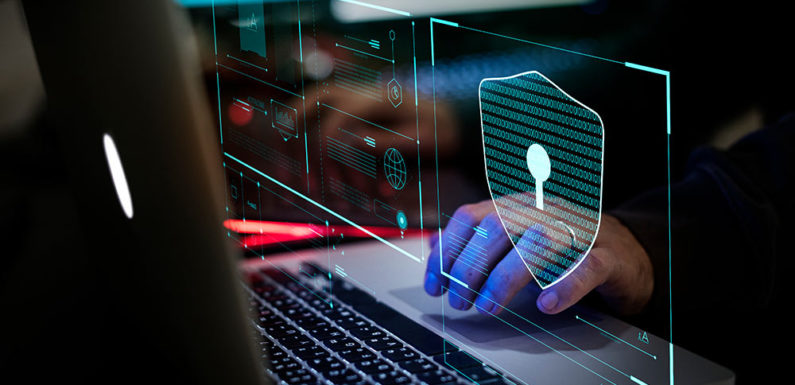
The digital world is rising to the top of the food chain, in fact, it’s always been there. We’re already a part of the never-ending cycle, linked to one another, forming the biggest audience on the internet. But, how safe is it for us during the Pandemic? Or better yet, is it any different from before?
There are cyber sharks in the deep waters of the web
It is a fact that the internet is a great place to be on, in fact, most of the time we often forget the darker sides of it. There will always be hackers or cyber attackers waiting on the other side of your screens. Even though a situation like this is easily tackled at a workplace, it gets much more difficult in a different setting.
There’s an increase in cyberattacks during the Covid-19 pandemic
There’s been a lot of damage and vulnerabilities created ever since the Covid-19 came barging into our lives. The situation got so sensitive up to a point that everyone needed all the help and information they could get. Be it donations, Pandemic news alerts, tips, helplines, etc.
Work-life had been disrupted, forced to mingle with life at home. Amidst all of this, even the cyber-security landscape had ultimately changed. Due to this, cyberattacks are even more prone to be successful.
Because of the high alert created, many cybercriminals took this opportunity to make the most of the situation. It’s true that in between all the rubbage, criminals will always take full advantage.
According to WHO, during the Pandemic, many fraudulent emails posing to be from within the organization, sent out hundreds of scam emails, targeting the general public. One-click on those links can send numerous issues to your doorstep.
Before getting into how you can dodge cyberattacks during the pandemic, let’s first talk about what these cyber attacks look like.
What kind of cyberattacks are you dealing with during the pandemic

Cyberattacks have evolved over time, taking newer and much more advanced forms and approaches. However, during the Covid-19 breakout, new waves of cyberattacks have mainly revolved around the following:
Fake quarantine Aid Maps
Most people are looking for the best quarantine spots or hospitals that can help out due to the situation. However, finding these spots aren’t so easy.
During the Covid-19, many cybercriminals took this opportunity to create fake map apps that are filled with malware spyware and more. The degree of fake maps was so high that it outshone authentic and real sources from ever being distinguished.
Apps
Most of us often download apps that we have no knowledge about. During the Pandemic, because the rate was so high, it had the entire world on high alert. Everyone was falling for various scams created through apps that promised to detect the infected within their surroundings or give out health tips and tricks to fight the virus.
What most of us don’t know, is that these very apps come with spyware, malware or viruses. Once downloaded, they spread through various files, corroding important information, stealing and selling them, hacking into important accounts.
Phishing emails or calls
This has got to be one of the most famous kinds of cyberattacks. It doesn’t even have to be Pandemic related but phishing scams have managed to take all sorts of forms, ushering victims to comply. At some point in time, you have received an email that says, “Get the best treatment here” or “Help save a life by donating”, “Click on this link to get started”, or any sort of email that requires you to click on links, enter in email IDs, passwords, band account numbers and more.
The fact is, it’ll be difficult for you to identify an authentic source from a scam. Some phishing scams revolve around calls, with an “agent” on the other end of the line to make it sound “believable”.
So, how do you dodge a scam during the pandemic?
It’s because of the pandemic that many organizations require their employees to work from home. Apart from the general public receiving all sorts of scam emails and calls, there are also vulnerabilities in security, outside the office. Our offices have a whole IT and security team that works on keeping the threats at bay, but what happens once you work remotely, stuck to extreme basic or lack of security for your devices and data? Cyberattacks mainly target smaller businesses and remote workers due to their lack of security precautions or investments.

So, here’s what you can do, to dodge them:
Research is key
Never blindly walk into a fight, without knowing what you’re dealing with. As authentic as a source may seem, there are always ways to know what you’re dealing with. Look up the sources, search for valid emails and identification.
Anything that can help you out. It’s better to use your hours to try and stay informed rather than jumping the gun too quickly.
Use security software
Understand that the security network you’re used to at work is extremely different from the one at home. It’s less secured and more vulnerable to attacks.
There’s no team to help support you during these situations. Even if it’s not work-related, you need to be equipped with the best security systems for your device. Be it a VPN, an anti-virus, malware protector or spyware apps.
Make sure they’re updated
Don’t just download or invest in security apps and let them do their thing. There’s a part that you play in smooth functionality too. Always adhere to the update signs or emails that you get regarding your security apps. Older versions of apps are more susceptible to attacks. Always keep them up-to-date.
Update your devices
Along with the apps, you need to update everything on your device. Update your device drivers, because they always come with new features and more security levels.
Limit user access to your devices that carry important information
When you have a device that contains all kinds of sensitive information, like your work files, open emails, or bank account apps, never hand out access to these devices even to family.
Sometimes there are situations where your kid or younger sibling or parent may not be able to operate the device smoothly. They might accidentally click on a wrong link or enter an unauthorized website. This could lead to tarnishing everything on your device and not to mention, your privacy.
Keep passwords strong
If ever you’re already amidst cyberattacks because of clicking on a link that says “Covid-19 alerts”, it might spread spyware or viruses throughout your device. Once hackers are into your system, they’ll be able to hack into your media accounts or bank accounts.
But, to avoid it or make things a little difficult for hackers, make sure all your apps and accounts are heavily secured by strong passwords. Make sure they’re long, contain symbols and numerical.
Double factor authentication
Besides passwords, double or two-factor authentication is extremely important. If you’re hit by an attack and the hacker tries to break into your accounts, you’ll immediately be alerted. You will either receive an email or text asking if you had just requested a password change or used a different device to log into so and so account.
Back them up
Always keep important data backed up on a drive. Uploading everything to Cloud isn’t the best idea. It’ll still be easy to break into and access. Keep only what’s needed, and if you’re deleting anything, make sure you erase all traces of it. You’ll be surprised by how discarded information can be used by attackers.
Stay informed
Besides research, it’s vital that you spend a couple of hours or even a few minutes a day or a month, and read up about cybersecurity measures, and how to doge cyberattacks. Especially since the rise of cyberattacks during the pandemic. Little information can help you in the long run.
To conclude
It’s difficult to remain sane during the pandemic, but always make it a point to look into things before reacting. Besides being equipped with the best security, you have a part to play in all of this too. Use these tips to help you stay on top of your game and one step ahead of cybercriminals. Sure, you may not be a tech wiz, but you could definitely help slow down the attack rates by following precautionary measures.

